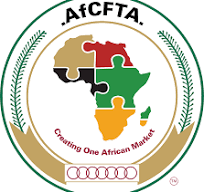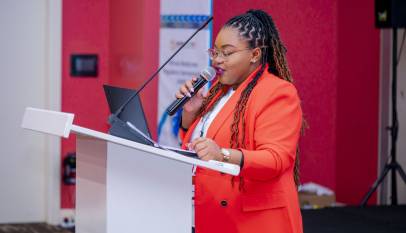Civil Society Groups Commend FCT for Accessing 2014, 2015 UBE Matching Grants

Press release
The Accountability in Basic Education Cluster, a consortium of Civil Society Organisations (CSOs), School Based Management Committees (SBMCs), Parent-Teachers’ Associations (PTAs), Community Development Associations (CDAs) and Faith Based Organisations (FBOs), commends the Honourable Minister, Federal Capital Territory (FCT), Mallam Muhammad Musa Bello for accessing the FCT un-accessed 2014 and 2015 Universal Basic Education (UBE) matching grants to States of the Federation. Speaking on behalf of the group, the Executive Director, Human Development Initiatives, Mrs Olufunso Owasanoye noted that this showed the FCT’s commitment towards achieving education for all, by ensuring successful implementation of the UBE programme.
Information on the UBE grants accessed by the FCT was contained in some documents released by Universal Basic Education Commission (UBEC) on Tuesday, January 24, 2017 on their website, detailing the disbursement, release and un-accessed funds from 2005 to 2016. The amount accessed by the FCT for 2014 and 2015 are N952, 297,297.30 and N876, 756,756.76 respectively, both totalling the sum of N1,829,054,054.09 for the 2 years. This development is long awaited after several calls on State Governments to access the UBE matching grant. The Accountability in Basic Education Cluster therefore commends the FCT leadership for their prompt action in this regard. It is on record that the Cluster had written a letter dated July 2016 calling on Mallam Muhammad Musa Bello, Honourable Minister, FCT and the Director, FCT Universal Basic Education Board to access the un-accessed UBE FG matching grants for improved delivery of basic education.
Evidences abound both from UBEC and reports from national dailies that for some years, a number of states have been unable to access UBE funds, while others have been inconsistent in accessing them. UBE funds are grants dedicated to supporting Nigerian states to implement the UBE programme. Generally, States are required to provide 50% counterpart funds in order to draw-down from the Federal Government matching grant. In addition to this requirement, State Governments through State Universal Basic Education Boards (SUBEBs) are expected to prepare and submit Action Plans to UBEC for vetting and approval, receive matching grants and properly utilise the funds following ‘due process’; submit reports on completion of projects for UBEC’s final monitoring, among others.
Mrs. Owasanoye said, “It is imperative to stress that failure of states to access the grants, non-transparent utilisation of funds, non-access to Action Plans and information on utilisation of funds, ineffective mechanisms for monitoring and tracking funds’ utilisation, politicization of public procurement and contract award procedures; non-participation and weak capacity of SBMCs, PTAs, CDAs and FBOs to engage and demand transparency and accountability in the utilization of UBE funds, will continue to be a setback to actualising the intended goals of UBE programme.”
The Cluster therefore enjoins the FCT UBE Board to utilize the N1,829,054,054.09 accessed judiciously in accordance with the provisions of the Action Plans submitted to UBEC. We also encourage them to make important information such as Action Plans, procurement and contract award procedures, amongst others available in the public domain, to boost participation of CSOs, SBMCs, PTA/PF, CDAs, FBOs and the media in the process of governance of basic education. This will help in the area of monitoring and tracking of funds utilisation for all round development.
Studies have shown that UBEC’s classification of States as “Top Performing, Performing, Average and Non-Performing” relative to access and utilization of matching grants is not linked to educational learning outcomes. The Cluster also seizes this opportunity to call on UBEC to develop clear criteria for rating States’ performance particularly considering learning outcomes. While some States have accessed up to 94% of their Intervention Funds and classified as Top-Performing, this cannot be said to have impacted much in terms of school enrolment and improved learning outcomes.
The Accountability in Basic Education Cluster is a USAID Strengthening Advocacy and Civic Engagement supported project which is led by Human Development Initiatives (HDI) with the sole purpose to entrench good local governance and accountability for quality and accessible primary education at the local government level in Nigeria relative to the Universal Basic Education (UBE) policy framework. The project also seeks to strengthen the capacity of Civil Society Organisations to effectively engage and influence public/government institutions whose function is to serve citizens’ interests and bring about the needed positive change.













